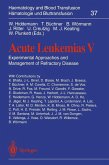Myelodysplastic syndromes are to the bone marrow what pneumonia is to the lungs; the response of an organ to a variety of etiologic insults like aging, toxic exposure, infections and auto-immunity. Among infectious causes alone, pneumonia could be the result of a variety of possible pathogens including bacterial, viral, tuberculous or fungal agents. Similarly, MDS cannot be treated as a single disease. Attempts to harness the inherent complexity of MDS by devising `classifications' which group the various syndromes as one disease is as misguided as saying that a pneumonia is not infectious because it did not respond to antibiotics. Progress in the field will occur faster when we re-analyze this premise. Therefore, until a clearer picture of the disease emerges it is best to treat each of the MDS syndromes as a separate entity. Having no classification is better than a misleading one. Cancer research has been notable for its periodic cycles of promise and hope, followed by defeat and disappointments. It is not that there is no solution, but that the problem has not been identified precisely. This book is our attempt to define the most crucial questions related to MDS that need to be addressed immediately through logic, analysis and rigorous experimentation. If the emerging problems appear daunting, then instead of being overwhelmed by them, we should follow the advice of the great 20th century thinker Antonio Gramsci, `pessimism of the intellect must be faced with the optimism of will'.
Dieser Download kann aus rechtlichen Gründen nur mit Rechnungsadresse in A, B, BG, CY, CZ, D, DK, EW, E, FIN, F, GR, HR, H, IRL, I, LT, L, LR, M, NL, PL, P, R, S, SLO, SK ausgeliefert werden.









